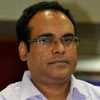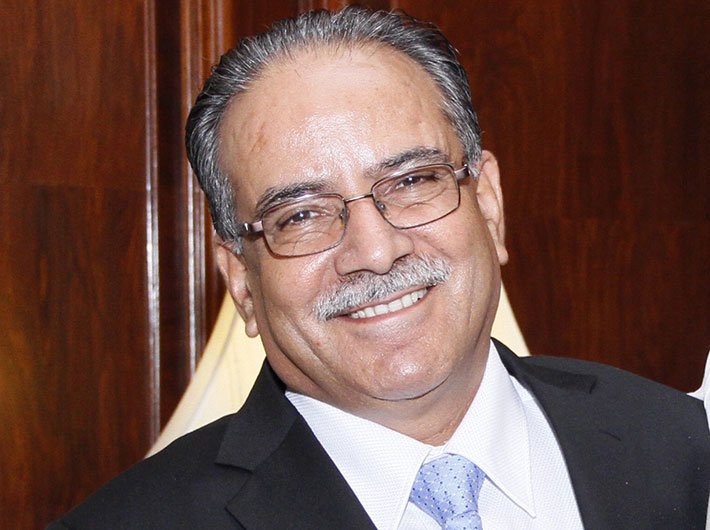Last year in July, Pushpa Kamal Dahal or Prachanda, as he is known as, visited India as an opposition leader of Nepal. We replug our interview with the current Nepal prime minister
Soon after the downfall of the USSR, American political scientist Francis Fukuyama theorised in his book ‘The End of History and the Last Man’ (1992) that the age of communism was over and the western capitalism was now going to be the permanent feature. Four years after this proclamation of the ‘victory’ of capitalism, however, the tiny Himalayan nation of Nepal was intent on proving him wrong as it witnessed a people’s war, waged by Nepalese Maoists’ People Liberation Army (PLA) led by chief commander Pushpa Kamal Dahal, better known as ‘Prachanda’. The decade-long war led to the downfall of the centuries-old Nepalese monarchy, and the emergence of modern democracy in the country. The war ended with the signing of a comprehensive peace agreement on the UN’s intervention. Thereafter, a constituent assembly election was held in 2008 in which Maoists got the maximum seats and Prachanda was elected the prime minister, although he resigned within a year. The assembly failed to draft a constitution, and a fresh election was held in 2013. Here the strength of Maoists decreased to a great extent. The constitution-drafting is now in its final stages. United Communist Party of Nepal (Maoist) chairman Prachanda has lent all his support to the drafting of the constitution. In July he visited India as an opposition leader of Nepal. On a busy morning, before meeting the prime minister, he spoke to Pankaj Srivastava. Edited excerpts:
Nepal has not got its constitution even eight years after the peace agreement. This was the main demand during the people’s war. What according to you have been the obstacles?
It is true that we had expected a big change after signing the comprehensive peace agreement. The country had high hopes of getting a new constitution. In the 2008 elections, when we emerged as the largest party, we had set a radical agenda for the country. The mandate of the people was with us, but status-quoist forces were not in favour of that and they tried their best to stop us. We too made a few mistakes. We ignored those forces who could have helped us. This was a subjective weakness. But most of the points in our agenda are still intact. The 16-point deal hammered out among the political parties on June 8 talks about democracy, federalism, secularism, republicanism, inclusiveness and proportional representation, among other things. These are the basis of the first draft of the constitution. We wanted a presidential form of government instead of the parliamentary system, but under the present circumstances we have to give up this demand.
You became prime minister after winning the maximum seats in the 2008 elections. But you resigned nine months later. Don’t you think you missed a good opportunity?
We were victims of overconfidence. We should have taken the support of the Nepali Congress. In fact, it would have been better if we had formed the government together. It was necessary to take support of a senior leader like Girija Prasad Koirala. Had we supported him for the post of president, he would have definitely provided stability to our government. Secondly, we made a mistake in taking action against the army chief of Nepal when he was about to retire in three months anyway. We could have merely given him a warning. We had taken the decision to prove civilian supremacy because he was not following instructions from the civilian government, but the president reinstated him. The Nepali Congress supported him too. The strategy turned out to be wrong and we had no option but to tender the resignation.
When will the constitution be ready and what will be its major features?
Major political parties want the constitution to be ready in next one month. At present, its draft is in public domain for discussion. However, there are challenges as well. There is no guarantee that Nepal will get its constitution in a month. If we are able to solve the issue of demarcation of states, the constitution will be ready. If it is not done, then there will be hurdles in this path. I am in touch with Indian leaders. India’s goodwill is necessary in framing of the constitution.
Will this constitution provide reservation for dalits and backward classes, as in India? Any special provision for women and minorities?
In Nepal, there is a provision [in the draft constitution] for 33 percent reservation for women. It is a big change. Women will be seen on 33 percent seats of parliament. There is no reservation for dalits, but, yes, there will be a special arrangement, which is yet to be defined. The constitution also envisions land reforms. Education and health care will be fundamental rights. According to the draft, there will be different ceilings on land holding in the hills and in the valley.
You call yourself a follower of Mao. For 10 years, you led the battle for a socialist revolution. Now, finally, Nepal is heading towards a bourgeois democracy, with your support. Does it mean that all the revolutionary talk was merely sloganeering?
This conclusion is not correct. The circumstances in which we fought the battle and the expansion of the war to 10 years have proved that the Marxist, Leninist and Maoist ideologies are still relevant. The one who talks about the end of such ideologies is wrong. We are not heading towards a bourgeois democracy. We have come a long way from monarchy and feudalistic monopoly. Had we not started the war with the support of the exploited communities, it would have taken at least 50 more years to achieve the secular constitutional republic. We have changed an era in Nepal.
But in this process, your party has witnessed a great loss. It was placed third in the 2013 elections. Why?
There is an international perspective of the communist movement. When we started the people’s war, the communist movement in the world had weakened. Yet, about 80 percent of the country had come under the control of PLA. It would have been natural for us to take over. But we didn’t choose that path keeping in view the global circumstances. We had won the election with the support of Nepal’s people, but there were international conspiracies trying to weaken us. In fact, there was a time when I, from PM’s residence, was waiting for the army’s attack supported by international forces. Comrades of PLA were ready with machine guns and waiting for the attack and I was mentally prepared for martyrdom. In history, such attacks from reactionary forces are not uncommon, but in Nepal eventually that did not happen. For us it turned out to be a big challenge to manage the arms of PLA and include its fighters in the army. We took the risk of following the path of peace talks and agreement. This led to an ideological struggle within the party. There was an internal breakdown too. We are trying afresh to unite again. There was also a time when I gave up my ‘Mashaal’ group to integrate Maoists across the country. We will not hesitate to make sacrifices for the unity of all the communist forces in future as well.
Earlier, there was monarchy and now the country is heading towards a functional democracy. India already is a functional democracy but some parts of the country are witnessing guerilla wars by Maoists groups. What is your message to them?
I will not comment on the way these armed Maoist groups are operational in India, but, yes, I will definitely say that sooner or later they will join the peace process. That is the only way to put their agenda on the national level. That is the only way to bring various kinds of exploitations, on class, caste, language and other lines, to national debate. I am confident that Maoists in India will join the peace process.
Nepal was the only Hindu country until it became secular recently. But some forces are still talking about monarchy and Hindu nationhood.
Some people in India also wish to see Nepal in that old perspective. What will you say?
The state must be secular and should respect all religions equally. Otherwise, communalism will increase, goodwill will decrease. This principle is the pillar of modern democracy. Some parties are raising slogans for a Hindu nation but this will never happen. The leftist consciousness has made an impression on the minds of Nepalese people; it will never let supporters of monarchy succeed in any way. Nepal will always be a secular nation. Yes, we are against forced conversion and the constitution will have provisions in this regard as well. India is also a secular country and we are confident it will not try to interfere in the secularist path that Nepal has taken.
Nepal’s Maoists have always demanded scrapping of the friendship treaty with India. Does it have widespread support?
The treaty signed in 1950 is completely one-sided. Not just Maoists, but Nepal’s people too want it scrapped. It is necessary to think over it. India and Nepal should work together to scrap it. Our talks are still going on.
Nepal is located between two superpowers, China and India. How difficult is it to maintain the balance?
Nepal is aware of its conspicuous location. Peace and partnership are necessary. That is why we are talking of a tripartite agreement between the three countries.
You have met prime minister Narendra Modi earlier too. What has been his attitude towards Nepal?
Modi has visited the country twice. He has shown his commitment for solving most of the issues. We are hopeful that Nepal will get his constructive cooperation.
[Translated from Hindi by Swati Chandra]
feedback@governancenow.com
(The interview appears in the August 1-15, 2015 issue)

